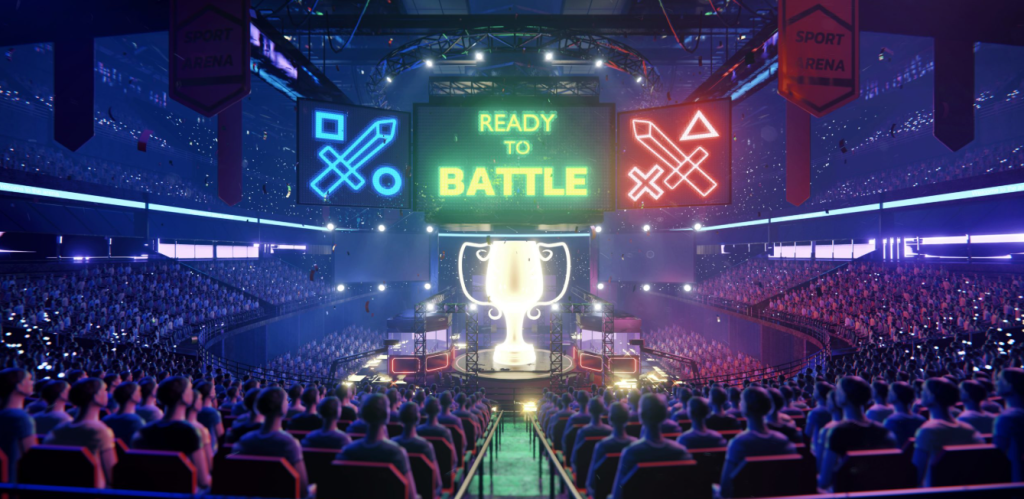
A few years ago, Tom was just another young investment analyst in London’s financial district. Monday to Friday, he wore sharp suits and tracked earnings reports. On weekends, though, he was all about League of Legends and CS:GO, holed up in his flat with takeout and a headset. Nobody expected him to quit his job in 2023 and go all-in on a startup in the esports space. “Watching pros play,” he said, “felt more real—and more promising—than anything I saw on Wall Street.”
Tom wasn’t alone in that realization. From New York to Seoul, esports is no longer just for “gamers.” It’s becoming a legitimate investment sector, driven not by tournaments alone but by the entire cultural and commercial ecosystem around them. In fact, Newzoo predicts global esports revenues will surpass $2 billion by 2025—not just from ticket sales or prize pools, but from a complex web of content, branding, tech, and community.
Why Is Esports Investment Heating Up?
For years, traditional investors rolled their eyes. “Isn’t this just kids playing video games?” But if you’ve ever been to a live event—say, League of Legends Worlds in LA or The International in Stockholm—you’d know it’s much more than that. The crowds scream like it’s a rock concert. Teams stake their reputations. Brands pour in millions for just seconds of exposure.
And more importantly, the business models around these events are becoming increasingly mature. Streaming platforms like Twitch, publishers like Riot, gear companies like Corsair, ad networks, influencer merch, even Web3 experiments—they’re all finding stable monetization paths inside the esports universe.
So, Who’s Worth Watching in 2025?
Investing in esports isn’t about betting on who wins the next tournament—it’s about who turns attention into long-term value.
Take Logitech, for instance. Not only are they deep in the gaming peripherals market, they’ve smartly positioned themselves as a lifestyle brand through partnerships with top-tier teams and streamers. For Gen Z gamers, having a Logitech headset isn’t about function—it’s about identity.
Over in California, Super League Gaming is quietly building the grassroots scene. Instead of chasing pro teams, they focus on organizing local tournaments for teenagers and schools, capturing younger demographics early. They’re not flashy, but they’re sticky—especially for parents willing to pay for “safe, social gaming.”
In Europe, Modern Times Group (MTG) deserves attention. After acquiring ESL and DreamHack, they’ve secured much of the continent’s premium esports IP. They’re expected to expand into Latin America or the Middle East in 2025—regions that are just heating up in gaming.
Then there’s FaZe Clan, a content-first organization that just happens to own esports teams. Think of them less like a sports club and more like “Gen Z’s Disney.” With revenue coming from YouTube, fashion collabs, and social media, FaZe is more influencer empire than sports brand. After a rocky IPO in 2022, they’ve doubled down on monetizing their content machine—and it’s working.
And Don’t Forget the Giants
If you’re looking for safer bets, there’s always the big dogs. Tencent, via Riot Games, owns League of Legends. Activision Blizzard, with Call of Duty and Overwatch. And of course Microsoft, which now owns a massive slice of the pie thanks to its acquisition of Blizzard.
One interesting shift is how some of these giants are stepping back from the traditional “league” format. Activision’s recent decision to loosen its grip on franchised leagues and allow more creator-driven community events is a huge deal. They’re even experimenting with NFT ticketing and decentralized prize pools—suggesting a new, hybrid model of Web2 professionalism meets Web3 freedom.

The Real Game Is Not About Winning Matches
At a Berlin esports investment panel earlier this year, Charlotte—a Dutch VC who rarely touches gaming—put it best: “We don’t care if your team wins Worlds. We care if your fans will spend five hours a week watching you—and maybe buy your merch.”
That’s the core of esports investing in 2025. You’re not chasing trophies. You’re chasing attention, engagement, and cultural relevance. Championships come and go. Brands that command loyalty? They print money.
It’s Not Just a Game Anymore. It’s a Culture—and a Business.
Skeptics still ask, “Isn’t the esports boom over?” That’s like asking if people will stop watching football. Esports isn’t a fad—it’s the digital native generation’s default form of entertainment.
And for investors, it’s no longer a high-risk bet. It’s a slow-burn, brand-building empire that demands patience and belief. You’re not just buying into a team. You’re buying into a movement.
Tom, now running his own gaming fund out of Berlin, put it this way:
“I don’t check stock charts as much these days, but I never miss a Twitch stream from my favorite Valorant team. That’s where the next unicorns are.”
![]()


